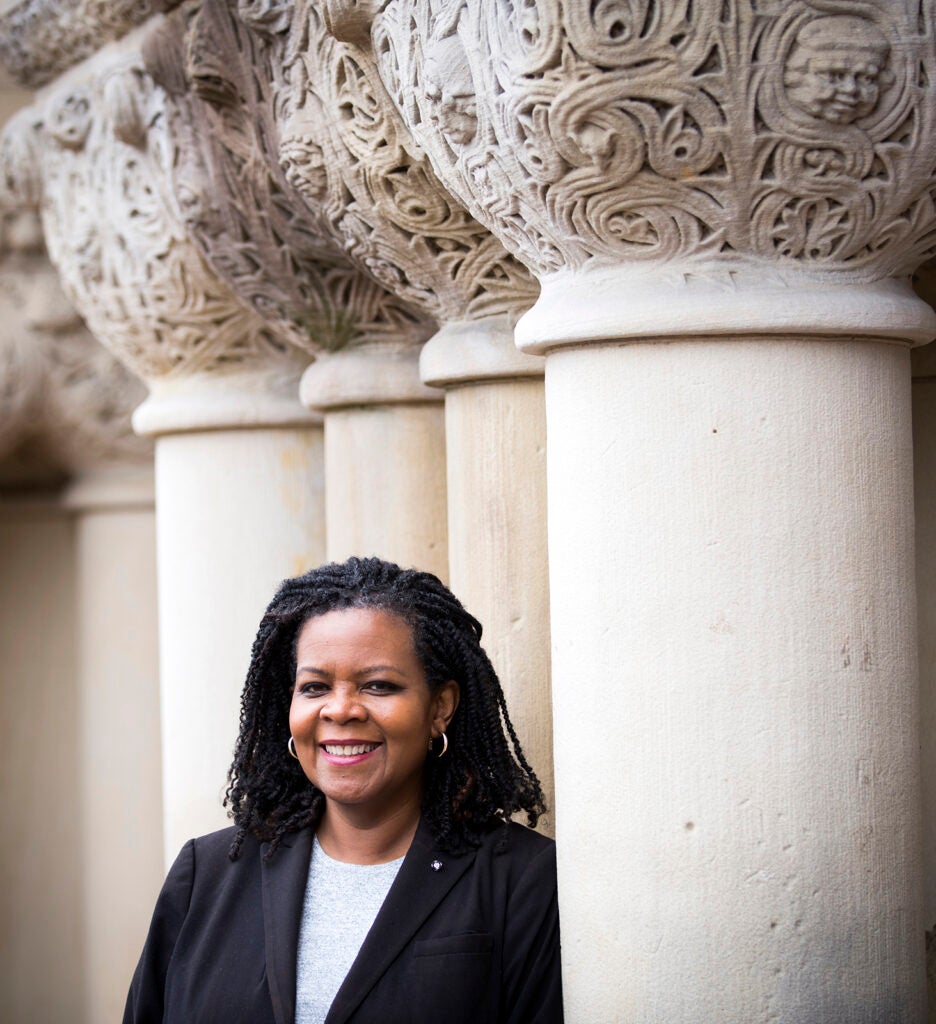KINGSTON, R.I. – Jan. 24, 2022 – James Young, distinguished university professor emeritus of English and Judaic Studies and founding director of the Institute for Holocaust, Genocide, and Memory Studies at the University of Massachusetts, Amherst, will open the second half of the University of Rhode Island Center for the Humanities’ lecture series, “Memorials and Commemoration in the U.S.”
Young’s lecture, “The Stages of Memory: Reflections on Memorial Art, Loss, and the Spaces Between,” will trace an “arc of memorial vernacular” from Maya Lin’s design for the Vietnam Veterans Memorial, to Holocaust counter-monuments in Germany, to Berlin’s Denkmal for the Murdered Jews of Europe, to the 9/11 Memorial in New York City, and to the National Memorial for Peace and Justice in Montgomery, Alabama. Young, a design juror for the Denkmal and 9/11 memorials, will reflect on the memorials as ongoing processes whose significance and meanings continue to evolve over time.
The author of The Stages of Memory: Reflections on Memorial Art, Loss, and the Spaces Between and Writing and Rewriting the Holocaust: The Texture of Memory, Young has also written widely on public art, memorials, and national memory. He is the recipient of the Guggenheim Fellowship and ACLS Fellowship, among numerous awards.
Young’s talk is Thursday, Feb. 3, at 5 p.m. in Swan Hall, Doody Auditorium, 45 Upper College Road. The lecture will also be livestreamed. To register to attend or watch the lecture, go to the event webpage.
URI’s Memorials and Commemoration in the U.S. series began last fall exploring the people and events that society, nationally or locally, chooses to commemorate and the factors that shape those decisions. The in-person and virtual lectures are free and open to the public. Registration is required.
The series continues Thursday, March 3, at 7 p.m. with the virtual lecture “Recognizing the Legacy of Slavery in Rhode Island.” Victoria Johnson, James DeWolf Perry and Charles Roberts, members of organizations committed to raising awareness of Rhode Island’s large role in the transatlantic slave trade, will discuss their groups’ work.
Johnson, a native of Newport and retired principal, is a member of the founding and steering committees for the Newport Middle Passage Ceremony and Port Marker Project, a grass-roots group established to commemorate and honor the thousands lost in the middle passage of the slave trade. Roberts, a visual artist, is founder and executive director of Rhode Island Slavery History Medallions, a statewide public awareness program committed to marking historic sites connected to the history of slavery in Rhode Island.
DeWolf Perry, a board member of Providence’s Center for Reconciliation, was nominated for an Emmy Award as the principal historian consultant for the PBS documentary “Traces of the Trade: A Story from the Deep North,” which explores the legacy of slavery in New England. He is a descendent of James DeWolf, the most prolific slave trader in U.S. history, and is a co-founder of the Tracing Center on Histories and Legacies of Slavery.

The series closes Thursday, April 14, with the in-person lecture “On Juneteenth: The Essential Story of ‘Freedom Day’ and Its Importance to American History” with Pulitzer Prize-winning historian Annette Gordon-Reed. The lecture will be held in Edwards Hall Auditorium at 7 p.m., and also livestreamed.
On Jan. 1, 1863, President Abraham Lincoln issued the Emancipation Proclamation that declared more than 3 million enslaved people living in the Confederate states to be free. It was more than two years before Union Army Gen. Gordon Granger arrived in Texas with the news, on June 19, 1865. Since then, Juneteenth has been celebrated in many states, but it was only last year that Congress recognized it as a federal holiday.
Gordon-Reed will explore the evolving significance of the Juneteenth celebration with a blend of memoir and history that looks at the violence and oppression that preceded and followed the celebration, what it means today, and how it relates to the larger fight for equality.
Gordon-Reed is the author of numerous books on Thomas Jefferson, including The Hemingses of Monticello: An American Family, which won the Pulitzer, National Book Award, and 14 other awards. She is the recipient of the National Humanities Medal, a Guggenheim Fellowship, and a MacArthur Fellowship.
The lecture series is sponsored by the URI Center for the Humanities, College of Arts and Sciences, Office of the Provost and Department of History.

